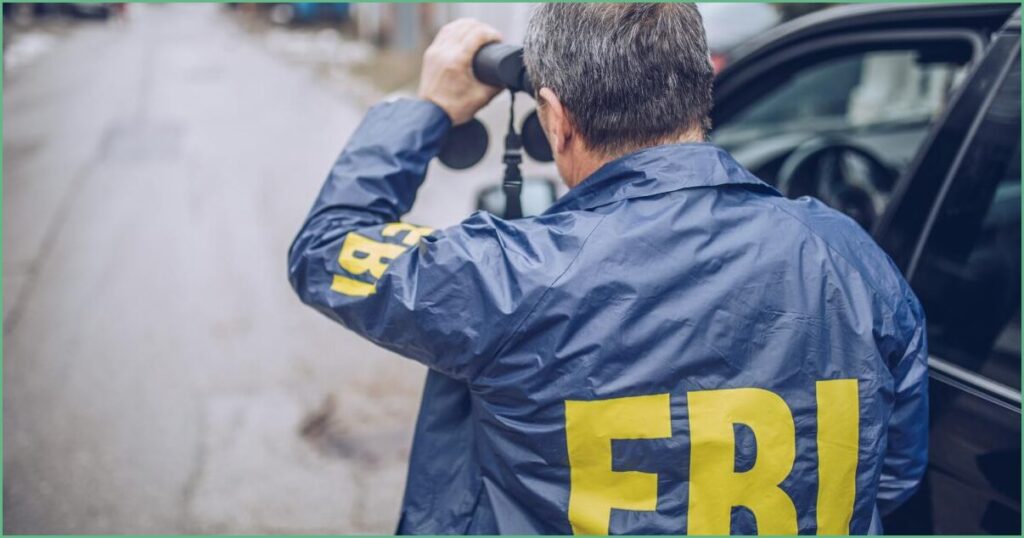FBI Summer Crackdown: Facts, Fails, and What Comes Next
The bureau conducted “Operation Summer Heat” from June 24 through September 20, which featured teams from all 55 FBI field offices and other law enforcement partners. The initiative cracked down on violent crime in major U.S. cities. That basic fact deserves a straight, no-fluff read.
This was a broad federal push into neighborhoods where residents have been living with fear and too many unanswered calls for help. Local police, federal agents, and task forces combined resources to pursue violent offenders, gangs, and fugitives. For conservatives who have been pushing for real public safety, this felt overdue and necessary.
Say it plainly: when violent crime spikes, the federal government has a role to play alongside state and local authorities. Too many cities chose policies that rewarded permissiveness and punished victims. Operations like this are the corrective action that voters asked for at the ballot box.
Results-based policing matters, and this campaign was about measurable action. Arrests were targeted and specific, not broad-brush repression of communities. The goal was to remove the most dangerous individuals from the streets and restore a baseline of safety for residents and businesses.
The politics here are unavoidable but clear: law and order wins when enforcement is consistent and visible. Republicans will say we need more of this, not less, and that leadership must stop apologizing for being tough on crime. A safer city is the foundation of opportunity and commerce.
Operational success requires intelligence, cooperation, and follow-through, and this operation layered those elements. Sharing data across 55 field offices is not small potatoes; it shows federal capability when pushed. But operational muscle alone is not the whole answer.
Prevention matters as much as arrests. Conservatives support strong policing but also demand accountability, prosecution, and penalties that actually deter repeat offenders. If arrests do not lead to convictions or meaningful consequences, the cycle repeats and the public loses confidence.
Local judges and district attorneys play a huge role in converting field work into lasting safety. When prosecutors decline to pursue violent charges or judges hand down insufficient sentences, boots on the ground are wasted. Republican officials will continue to press for prosecutors who prioritize victims and public safety over political optics.
Community involvement cannot be a token afterthought in enforcement campaigns. Residents must be partners in intelligence and neighborhood stabilization. Republicans support reinvesting in community policing, victim support, and programs that offer real alternatives to crime for at-risk youth.
There is also a fiscal angle that should not be ignored: crime costs cities money in lost business, property value declines, and higher policing expenses. Restoring order is not merely moral; it is an economic imperative. Taxpayers deserve to see measurable returns on public safety investments.
Transparency about results matters to build trust in operations like “Operation Summer Heat.” Publish clear arrest numbers, charge types, and follow-up metrics so citizens can see outcomes. Republicans insist on accountability from government, including federal law enforcement.
Another point is resource allocation. Sending federal teams into cities signals priorities, but sustainable safety needs local capacity strengthened. Training, funding, and legal support for state and municipal police departments create long-term resilience. A one-off operation helps, but a durable solution demands ongoing commitment.
Policy reform should follow hard lessons from field results. Where arrests fail to hold or detention is short-lived, state legislatures must consider legislative fixes. Republicans favor common-sense sentencing reforms that protect victims and deter the worst offenders while allowing fair treatment for minor, nonviolent cases.
Public messaging matters too. When national leaders give mixed signals about crime, it emboldens bad actors and unnerves law-abiding citizens. This operation sent a clear message that violent crime will be confronted, and Republicans will push to keep that message loud and consistent.
There’s also a national security component that gets less attention. Gang networks often cross state lines and sometimes touch international crime. Federal coordination is essential to disrupt those networks efficiently and prevent local problems from becoming regional crises.
We should not romanticize federal intervention as the only answer, but neither should we declare it off-limits. Republicans want powerful cooperation between federal and local law enforcement, not jurisdictional posturing that leaves victims in the middle. Partnership is practical and effective.
So what should policymakers do next? First, prioritize prosecutions that deliver justice, not headlines. Second, expand support for proven prevention programs and community engagement strategies that reduce recidivism and keep youth out of gangs.
Third, demand transparent reporting after operations so voters can judge success for themselves. An informed public is the best check on both lawlessness and weak policy. Republicans will keep pushing for data-driven approaches that respect civil liberties and restore safety.
In short, “Operation Summer Heat” was a welcome push against rising violence, but it is only step one in a longer fight. Enforcement, prosecution, prevention, and community partnership have to move forward in lockstep. The goal is simple: safer streets, accountable justice, and a community where families and businesses can thrive again.
